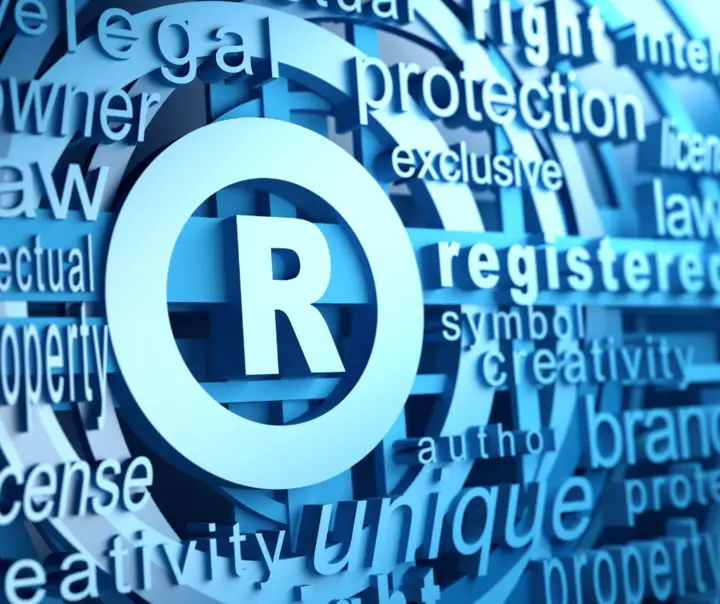A basic understanding of intellectual property law is helpful for business attorneys who are often the first point of contact when legal issues arise for their clients. Trademarks, for example, are assets that can significantly impact a business’s identity and success. In this article, we discuss some trademark fundamentals to help business attorneys identify potential issues and know when it is time for their clients to engage with trademark counsel.

What Does a Trademark Protect?
A trademark can be any word, name, symbol, or design that distinguishes and identifies the source of the goods or services of one party from those of others. This distinction matters in the marketplace, where a trademark acts as a badge of origin and quality, assuring consumers of the consistent standard they expect from a brand they trust.
The protection offered by a trademark is twofold:
- It protects consumers by preventing confusion in the marketplace. This is particularly important in today’s global market, where consumers are bombarded with an array of similar products and services. Registered trademarks ensure that a consumer can quickly identify the source of a product, relying on the quality that the brand represents.
- It safeguards the business owner, granting them exclusive rights to use the mark in commerce in connection with the goods or services it represents. This exclusivity is a powerful tool in maintaining a brand’s identity and market position.
In the United States, trademarks are protected under the Lanham Act, which provides a national framework for the registration and protection of trademarks. This federal law not only governs how trademarks are registered but also protects owners of trademark registrations from another confusingly similar mark being used for similar goods or services.
Do You Have to File a Federal Registration for Trademark Protection?
State trademark registration, while limited in its geographical scope, can offer some level of protection within the state where the goods or services are provided. For a business with a broader reach, especially those operating across multiple states or engaging in interstate commerce, filing an application for federal registration with the United States Patent and Trademark Office (USPTO) is the preferred approach.
Federal trademark registration brings several significant advantages. It provides nationwide protection, which is important for businesses operating in more than one state or selling products online. Federal registration also establishes a legal presumption of the registrant’s ownership of the mark and their exclusive right to use it, which can be a powerful tool in litigation. Further, it allows the trademark owner to use the federal registration symbol ®, which can help to deter potential trademark infringement.
Federal registration also makes the trademark part of the searchable USPTO database, providing public notice of the owner’s claim to the mark. This can help prevent conflicts before they arise, as others can search the publicly available trademark database to see if marks are already registered for specific goods or services. For businesses looking to expand internationally, a USPTO registration can also serve as a basis for obtaining trademark protection in foreign countries.
How Is a Trademark Different From a Copyright?
Trademarks are primarily concerned with brand identity. They protect words, phrases, symbols, logos, or designs that identify and distinguish the source of goods or services. The key function of a trademark is to signify the origin of a product or service to consumers, ensuring that a brand’s reputation and goodwill are exclusively associated with its owner. Trademarks do not expire as long as they are in use and the necessary renewal processes are followed, making them potentially perpetual assets for a business.
Copyrights protect original works of authorship. This includes a wide range of creative expressions such as literature, music, art, and software. Copyright law aims to safeguard the creator’s rights to their work, preventing others from copying, distributing, or exploiting it without permission. Unlike trademarks, copyrights do not protect names, slogans, or logos, but rather the expression of ideas. Copyrights have a limited duration, typically the life of the author plus 70 years in the U.S., after which the work enters the public domain.
The distinction becomes particularly relevant when advising clients on how to protect their business assets. For instance, a company’s logo may be protected as a trademark, as it identifies the company’s products or services. However, the artistic design of the logo itself could also be protected under copyright law, as it is a creative work.
Can I Protect My Trademark if Another Business Used It First?
In the U.S., trademark rights are generally based on the “first use” principle, meaning the first party to use a mark in commerce typically has the rights to the mark in that specific context. This principle underscores the importance of conducting thorough trademark searches before using or filing a trademark application with the U.S. Patent and Trademark Office. If a business starts using a mark without this due diligence, it risks infringing on the rights of a prior user, which can lead to receiving a cease and desist letter, further legal disputes, and the potential need to rebrand.
However, the scope of protection for a trademark is tied to the specific goods or services it is used with, as well as the geographical area of use. For example, if the prior use is limited to a different industry or a distinct geographical region where the client does not operate, there may still be an opportunity to use and register the trademark in a non-conflicting manner. In such cases, a new user might be able to obtain federal registration and a broader scope of protection, provided there is no likelihood of confusion between the two marks.
Schedule a Consultation With an Experienced IP Attorney
If you are a business attorney representing a business in need of comprehensive trademark advice, we are here to help navigate the complexities of trademark law and ensure that your client’s valuable assets are protected. Contact us to speak with one of our seasoned trademark attorneys.
About the Author
John Woodson is a Registered Patent Attorney who practices in the area of patent prosecution, patent infringement studies, and client counseling.

Share This



